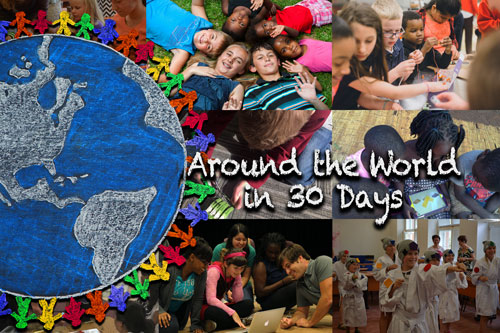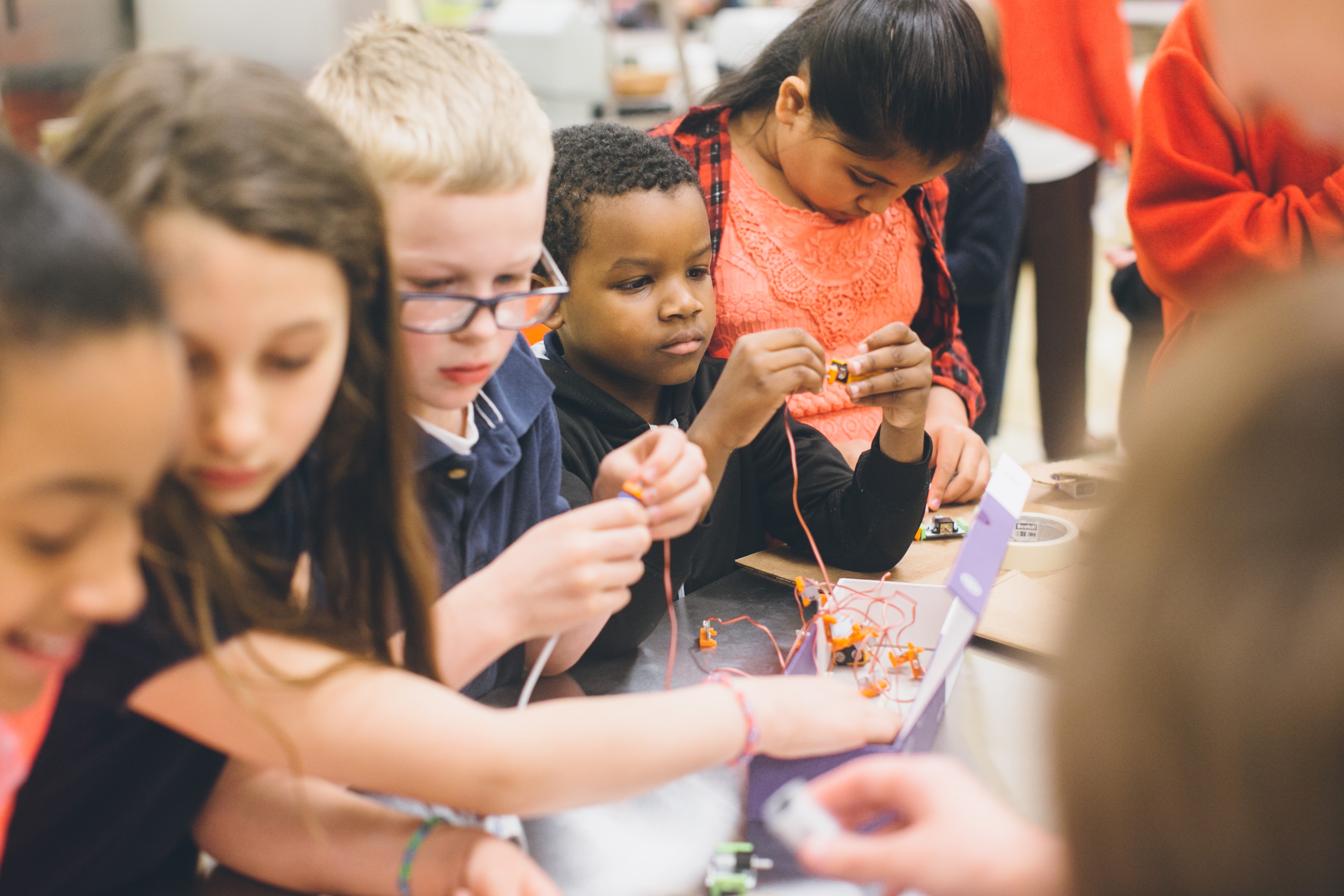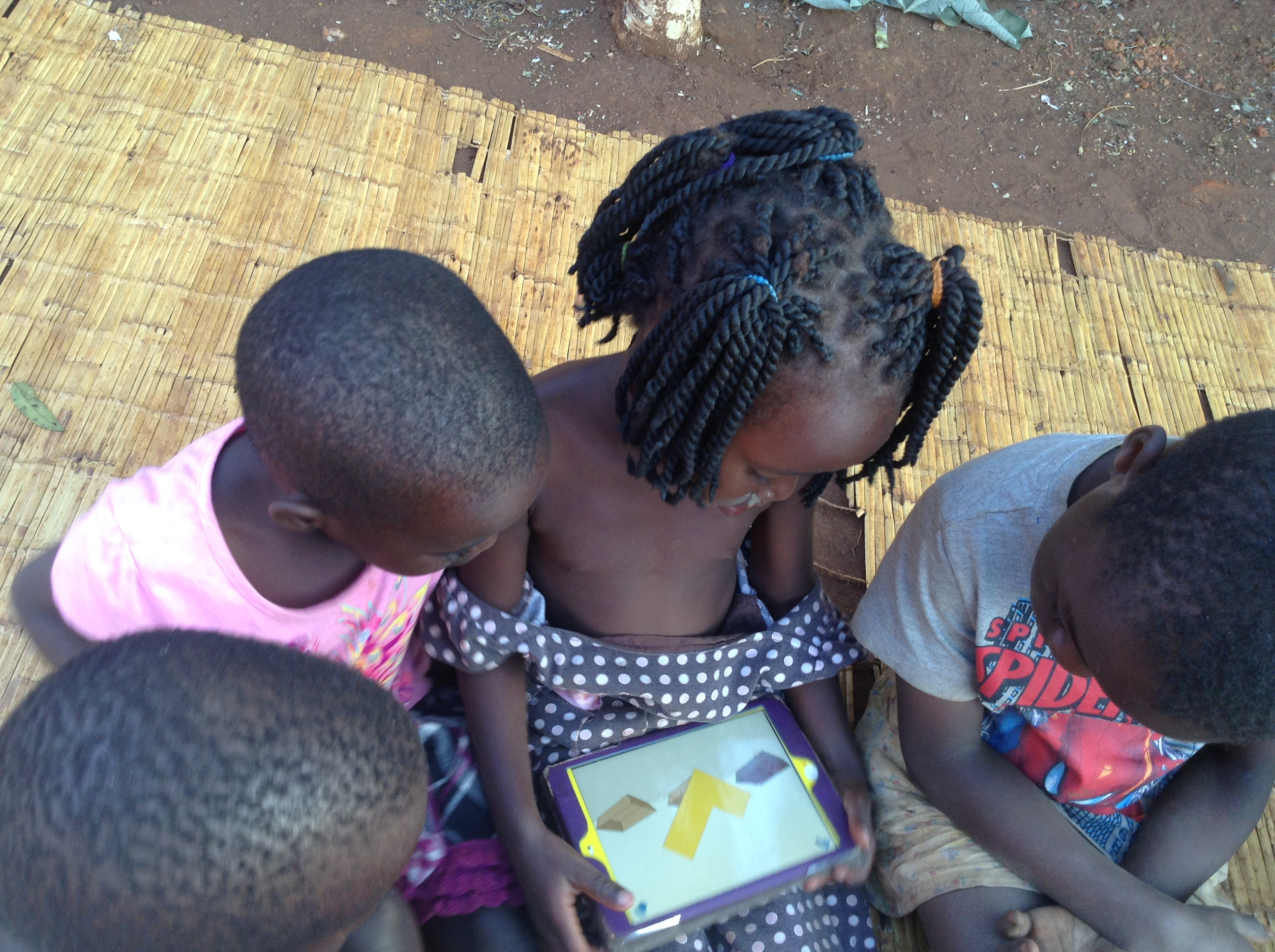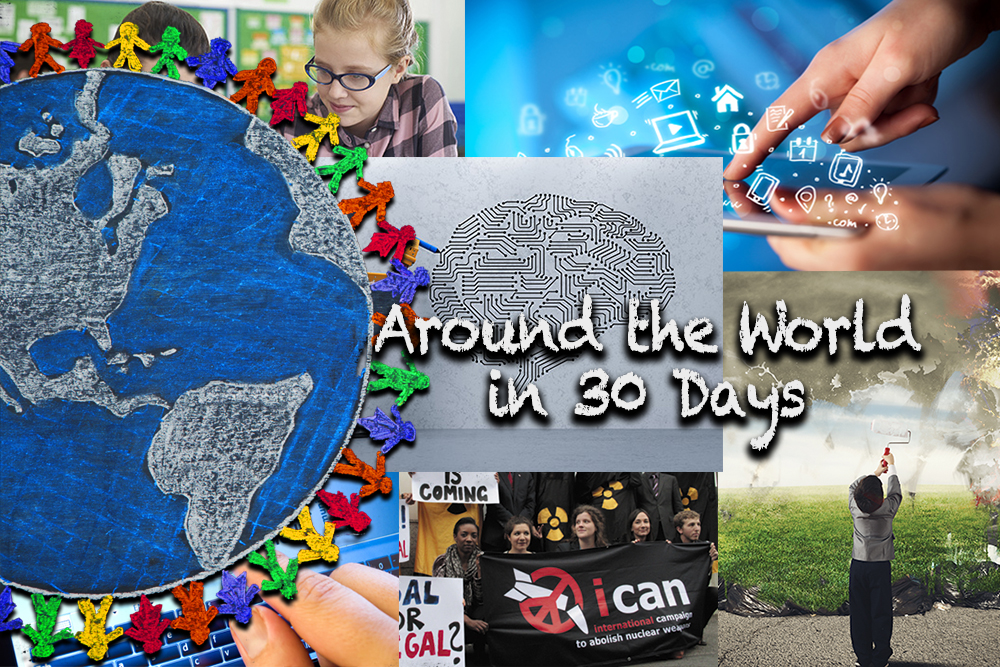C. M. Rubin’s Global Education Report
How can poor children in developing countries acquire reading, writing, and counting skills when there are inadequate qualified teachers and resources? A tablet is helping in Malawi. Onebillion has been bringing numeracy and literacy education to marginalized children in India, Uganda, Malawi and other countries, for 14 years. Their innovative learning app, Onecourse, with its numeracy material now available in over 50 different languages and its literacy material in Swahili, Chichewa, and English, has so far reached 100,000 children in Uganda, Malawi, South Africa, UK, Brazil, Ethiopia, Cambodia and beyond. Saili Mwale and his wife Catherine connected with the Onecourse program in 2012 and since then have been offering their home as a testing ground for Onecourse in their community in Lilongwe, the capital city of Malawi. This month, The Global Search for Education welcomed Saili Mwale to talk about how tablets are transforming learning.
As the world becomes increasingly global, solutions to fighting bias because of an individual’s race, religion, sexual orientation or other characteristics still remain a local challenge. Each one of us has a part to play in our everyday life if we are going to solve the global challenge. Having tolerance in a global world means understanding and being able to connect with all the people immediately around you and the peers with whom you share a community, and being equipped with the skills to find a “common ground” in any conflict. How can education help? This month, our Top Global Teacher Bloggers tackle these questions and share their unique perspectives.
Opher Brayer believes we need to redefine talent. A self-made entrepreneur, business mentor, teacher, innovator and former jazz musician, Opher’s STAGES educational movement is currently being rolled out to students across the Czech Republic. The goal of Stages, according to Brayer, is to equip students with the intelligences and the values that matter – the skills “we do not yet have the capacity to measure.” Brayer joined us in The Global Search for Education to talk about his program which includes 14,400 short, engaging, educational games that are designed to teach skills based on the premise that by teaching the brain how to “use its imagination,” students develop a mathematical brain without needing to work at it.
Ted Dintersmith recently won the NEA Friend of Education Award. As a former venture capitalist, a parent and an author, Dintersmith believes that a child “excelling in the non-traditional might well have the ideal preparation for the innovation era.” He also thinks the best thing a parent can do is to raise children confident “of managing their own life.” Dintersmith traveled around all 50 U.S. states in the course of one school year and visited hundreds of schools. To his surprise, he met visionary, hardworking teachers in public school settings taking important steps to teach beyond standardized tests and re-imagine their schools.
The Global Search for Education welcomed Ted this month to talk about the insights and inspirations he’s gained from American teachers and to share his own perspectives on What School Could Be (which is the title of his new book).
Our thanks to all our contributors and supporters around the world.
Join me and globally renowned thought leaders including Sir Michael Barber (UK), Dr. Michael Block (U.S.), Dr. Leon Botstein (U.S.), Professor Clay Christensen (U.S.), Dr. Linda Darling-Hammond (U.S.), Dr. MadhavChavan (India), Charles Fadel (U.S.), Professor Michael Fullan (Canada), Professor Howard Gardner (U.S.), Professor Andy Hargreaves (U.S.), Professor Yvonne Hellman (The Netherlands), Professor Kristin Helstad (Norway), Jean Hendrickson (U.S.), Professor Rose Hipkins (New Zealand), Professor Cornelia Hoogland (Canada), Honourable Jeff Johnson (Canada), Mme. Chantal Kaufmann (Belgium), Dr. EijaKauppinen (Finland), State Secretary TapioKosunen (Finland), Professor Dominique Lafontaine (Belgium), Professor Hugh Lauder (UK), Lord Ken Macdonald (UK), Professor Geoff Masters (Australia), Professor Barry McGaw (Australia), Shiv Nadar (India), Professor R. Natarajan (India), Dr. Pak Tee Ng (Singapore), Dr. Denise Pope (US), Sridhar Rajagopalan (India), Dr. Diane Ravitch (U.S.), Richard Wilson Riley (U.S.), Sir Ken Robinson (UK), Professor Pasi Sahlberg (Finland), Professor Manabu Sato (Japan), Andreas Schleicher (PISA, OECD), Dr. Anthony Seldon (UK), Dr. David Shaffer (U.S.), Dr. Kirsten Sivesind (Norway), Chancellor Stephen Spahn (U.S.), Yves Theze (LyceeFrancais U.S.), Professor Charles Ungerleider (Canada), Professor Tony Wagner (U.S.), Sir David Watson (UK), Professor Dylan Wiliam (UK), Dr. Mark Wormald (UK), Professor Theo Wubbels (The Netherlands), Professor Michael Young (UK), and Professor Minxuan Zhang (China) as they explore the big picture education questions that all nations face today.
The Global Search for Education Community Page
C. M. Rubin is the author of two widely read online series for which she received a 2011 Upton Sinclair award, “The Global Search for Education” and “How Will We Read?” She is also the author of three bestselling books, including The Real Alice in Wonderland, is the publisher of CMRubinWorld and is a Disruptor Foundation Fellow.
Follow C. M. Rubin on Twitter: www.twitter.com/@cmrubinworld






Recent Comments